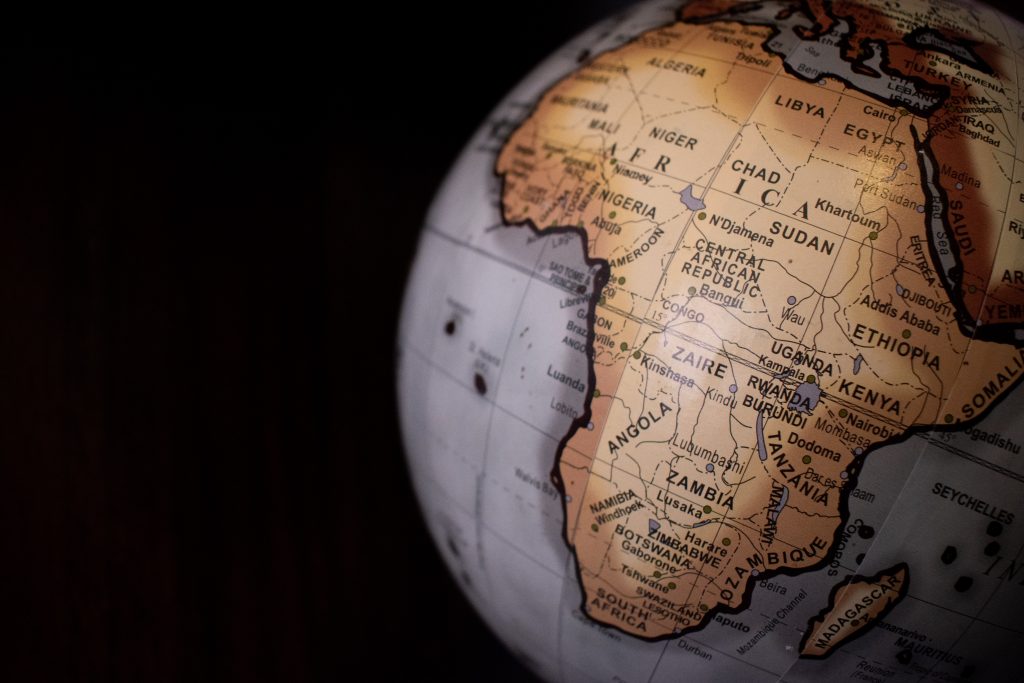
The Misrepresentation of Africa by the Media
Article by Ruby Owen
Photo by James Wiseman on Unsplash
Coming from a mixed-race household and reflecting on my upbringing in the UK after early childhood in Kenya, I don’t remember my mother’s country being mentioned in primary school at any time other than Red Nose Day when we were raising money for ‘those less fortunate’. Africa as a diverse continent of 54 countries was rarely celebrated or honoured, but once each year it was brought into our consciousness as somewhere needing sympathy. This image of hopelessness prompts me to discuss the inaccurate and damaging misrepresentation of Africa by the media.
‘Afro-pessimism’ is a pervasive force that has real cultural, social and economic impacts. It seeps into all channels of society – corporations, government institutions and education systems – forcing a twisted narrative.
One aspect is the perpetuation of stereotypes; those Unicef TV adverts present images of poverty, disease and conflict. Sure, these scenes exist, but they’re not exclusive to Africa and shouldn’t be the default perspective. They reaffirm simplistic assumptions of a hierarchy in which inferior Africans need hand-outs from the ‘developed’ world. I would rather use the terms ‘industrialised’ and ‘less industrialised’ to describe countries’ relative situations more objectively.
The portrayal of societies of the Global South as somehow beneath those of the Global North naturally makes them seem alien, and unattractive as investible business locations. I struggle to think of any major multinational headquartered in Africa. While trade is crucial for economic development, Africa represents only 2.8% of world trade,[i] despite being the planet’s richest source of natural resources.[ii]
Politically speaking, African countries are rarely offered leadership opportunities to address issues that adversely affect them, such as climate change or international terms of trade. While they may have equal voting rights in international policy dialogues (such as the COP gatherings of the Paris Agreement), they are more likely to be voting for or against motions proposed by more powerful global economic powers, rather than leading the debate.
Through misrepresentation, the media misses opportunities to share positive stories of resilience and innovation; and to create role models that will inspire others. A focus on challenges undermines people’s confidence and discourages them from reaching their potential. Young Africans feel discouraged from investing their talents in their own societies. Emigration is common among the middle classes and many seek permanent residence elsewhere. As of 2014, about 35% of Kenya’s skilled workers emigrated.[iii]
From a tourism perspective, I have had people say to me they would love to visit Kenya, but it seems ‘too dangerous’. Yet knife crime in London is at a record high and has risen 16% in the last year.[iv] The media’s skewed perception of personal risk can have severe economic implications for the vital tourism industry. Fortunately Kenya, with its wildlife, white sand beaches and cosmopolitan capital, has proven itself as an attractive destination over several decades, and the media may be finally recognising this. In 2022, the country saw a 70.5% increase in international tourist arrivals from 2021, and tourism earnings grew by 83%.[v] Lonely Planet just named Nairobi as their ‘best city to visit in 2024’[vi] and described it as a ‘global centre of culture… sizzling with unmissable travel experiences’!
Despite its undeniable material poverty, Africa is home to almost 1.5 billion people, 41% of whom are below the age of 15[vii] and represent opportunity and optimism. Perhaps change is coming as people are getting word that Africa is on the up. We see headlines like ‘The Moment in Africa is Now: Invest in Your People’ from the World Bank[viii] and ‘investing in Africa is sound business and a sustainable corporate strategy’ from the UN.[ix] Six of the world’s 12 fastest-growing economies are now in Africa.[x] Investing in the continent is a smart business move, with a growing and youthful population, contrasting with shrinking and ageing populations elsewhere. Maybe Africa is finally coming into fashion. While the resources of the continent have been exploited for centuries, can we now work as equals so Africa can capitalise on its own abundant assets?
Africa is a rich and diverse continent. Our history is vast and our cultures are fascinating. A one-dimensional portrayal of a homogenous and needy continent is truly painful. Addressing this misinterpretation calls for action not only from the media industry but also from governments and us as individuals. Efforts to improve the portrayal of Africa are crucial for a more informed discourse to promote a positive understanding of the continent and its people as equals, not charity cases.
Footnote:
[i] https://unctad.org/press-material/facts-and-figures-7
[ii] https://www.unep.org/regions/africa/our-work-africa
[iii] https://migrants-refugees.va/country-profile/kenya
[iv] https://www.standard.co.uk/news/london/knife-crime-london-surges-one-year-stabbing-khan-b1095672.html
[v] https://www.tourism.go.ke/wp-content/uploads/2023/02/ANNUAL-TOURISM-SECTOR-PERFORMANCE-REPORT-2022-2.pdf
[vi] https://bnn.network/politics/nairobi-kenya-lonely-planets-best-city-to-visit-in-2024/
[vii] https://worldpopulationreview.com/continents/africa-population
[viii] https://blogs.worldbank.org/nasikiliza/moment-africa-now-invest-your-people
[ix] https://www.un.org/africarenewal/web-features/investing-africa-sound-business-and-sustainable-corporate-strategy
[x] https://www.un.org/africarenewal/web-features/investing-africa-sound-business-and-sustainable-corporate-strategy

0 Comments